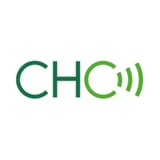

Jon Bigelow is Executive Director of the Coalition for Healthcare Communication, representing health communicators across advertising, marketing, medical communications, medical publishing, and digital media. He keeps Coalition members informed on evolving regulations and legislation that may aid, or impede, the free flow of accurate and credible medical information.
Jon previously was CEO and President of KnowledgePoint360 Group, a leading provider of multichannel medical communications, digital and strategic consulting, benchmarking services, and workflow solutions with 18 agencies across the U.S., U.K., and Germany. Earlier, he was President of Cliggott Publishing; founding Editor of a series of innovative controlled circulation clinical journals; and President of the Association of Medical Media. He provides strategic support to businesses and serves on boards at two companies and an ocean sciences laboratory.
For this month’s installment of our Pharma Innovators blog series, I spoke with Jon Bigelow, Executive Director for the Coalition for Healthcare Communication (CHC), about the importance of advocating for the First Amendment rights of pharma manufacturers and their agencies to educate healthcare providers and patients about their products. Jon also discusses how data privacy regulations are changing the future of healthcare communications.
Executive Director for the Coalition for Healthcare Communication (CHC), about the importance of advocating for the First Amendment rights of pharma manufacturers and their agencies to educate healthcare providers and patients about their products. Jon also discusses how data privacy regulations are changing the future of healthcare communications.
The Industry’s Voice
David Reim: What is the CHC? What was the impetus behind its foundation?
Jon Bigelow: CHC represents the industry’s voice at the table when proposals affecting healthcare marketing and communications are discussed. The Coalition’s members span advertising, marketing, scientific communications, public relations, medical journals, and digital platforms. Our mission is to protect and promote the free flow and accessibility of accurate and credible health information. We firmly believe that communications and marketing are just as important as R&D in bringing innovations to patient care.
Industry Evolutions
David Reim: Have the needs of CHC members been changing, and how is the organization tackling and adapting to those changes?
Jon Bigelow: The environment in which health communications takes place has evolved greatly since our establishment in 1991, from governmental shifts to the rise of big data. We, too, have evolved and were able to meet those challenges head on. The Coalition monitors issues as they develop and joins the dialogue by presenting the industry’s side of the story to the media, lawmakers, and regulators. When necessary, we mobilize members to show support or opposition for various proposals.
The patience of the public, and of Congress, has worn thin.
This year, we are focused on efforts to restrict or compel specific messages in medical marketing, renewed attempts to tax pharma marketing, new FDA initiatives, and considering how best to regulate data privacy and security.
Data Privacy Insights
David Reim: What are you currently observing on the development of new data privacy legislation, or amendments to existing? Can you share any insights beyond the facts of these laws?
Jon Bigelow: Collection and interpretation of personal data offers great potential to improve clinical care, clinical research, public health, and marketing, but the risks to privacy and security are increasingly clear. The patience of the public, and of Congress, has worn thin.
I would encourage pharma marketers to get their own houses in order.
As a result, over 20 competing data privacy bills have been introduced so far this year in Congress, from legislators of both parties. We are watching carefully as this debate unfolds, especially in how the proposals affect healthcare—for example, the use of algorithms to aid clinical diagnosis, the transparency of data on clinical trial sets, the safety of information in electronic health records, and the ability to target marketing messages.
David Reim: What advice would you give pharma marketers as they look to understand and support data privacy efforts within their roles and companies, while they also are working towards providing quality healthcare information to their audiences?
Jon Bigelow: I would encourage pharma marketers to get their own houses in order. Be certain your current data practices are compliant with HIPAA, GDPR, and other existing standards. It’s critical to make sure your vendors are also fully compliant. Stay informed by following the Coalition’s coverage on our website.
Legislative Awareness
David Reim: In an MM&M article published earlier this year, you mentioned data privacy as one of the areas to watch in Washington this year. Can you briefly explain the importance of being alert for any changes in legislation or trends that will affect your ability to get important information to physicians and patients?
Jon Bigelow: These are exciting times, with so many resources devoted to developing innovative therapies that save lives, enhance the quality of life, and bring savings to the healthcare system. But the success of the healthcare system depends on well-informed providers, payers, and patients who know when and how to use those therapies. Many policymakers do not fully understand how our ecosystem works, and even well-intentioned legislative or regulatory proposals can have unintended effects. As the industry’s voice, the Coalition endeavors to help policymakers make wiser decisions to keep the information flowing.
Read the complete interview here.
About the Coalition for Healthcare Communication (CHC)
The Coalition for Healthcare Communication is an organization that promotes the free exchange of accurate, credible scientific and medical information. It is essential that healthcare professionals and the general public receive truthful, accurate information regarding pharmaceuticals, medical products and devices, and patient care.
In addition to white papers and other documents published by the Coalition, you can also find relevant information on current healthcare economics issues, as well as policy positions published by government agencies and other professional organizations.




